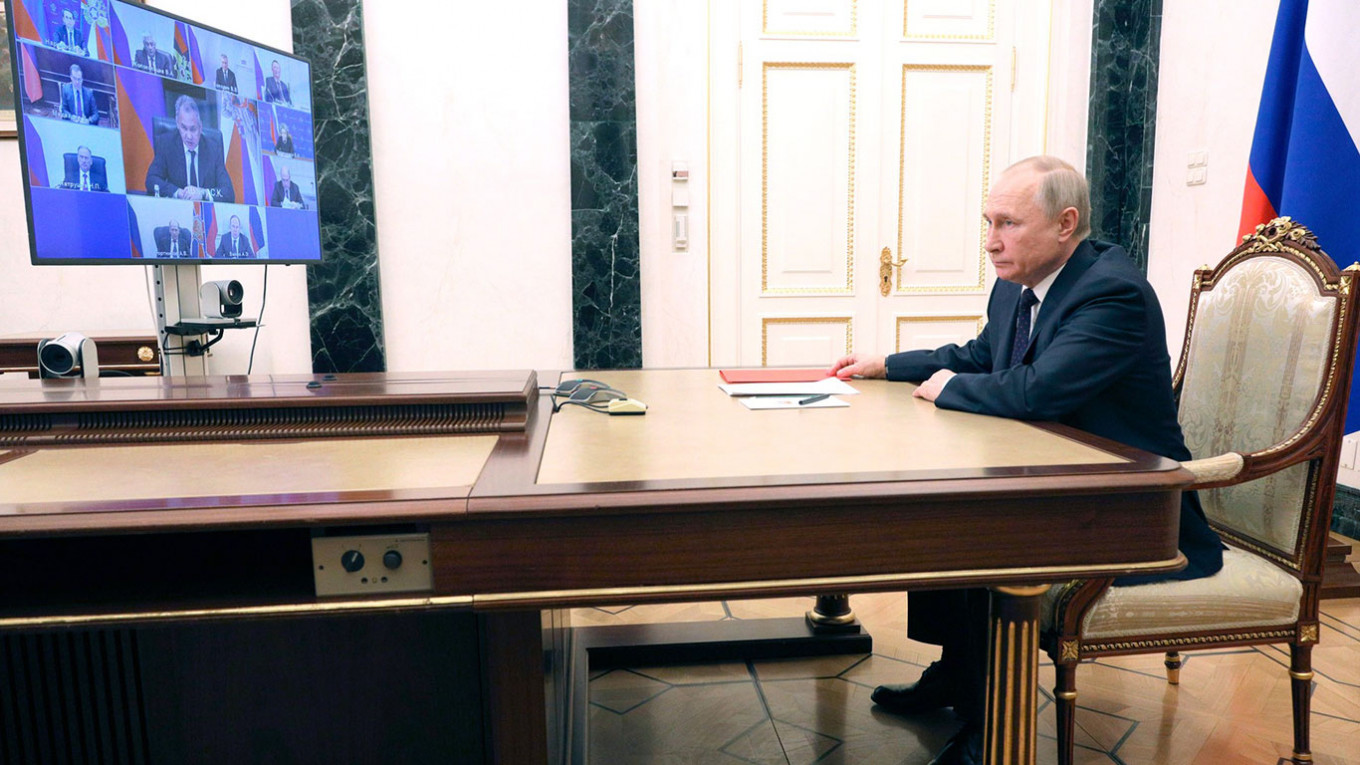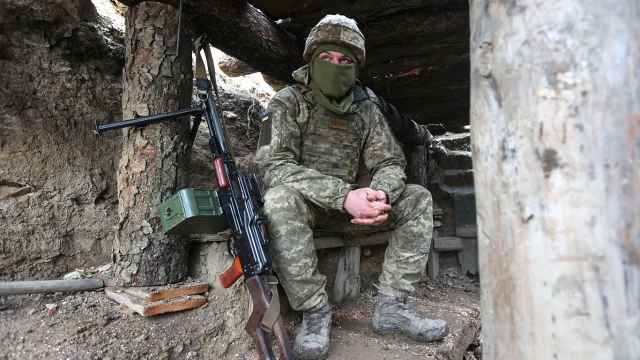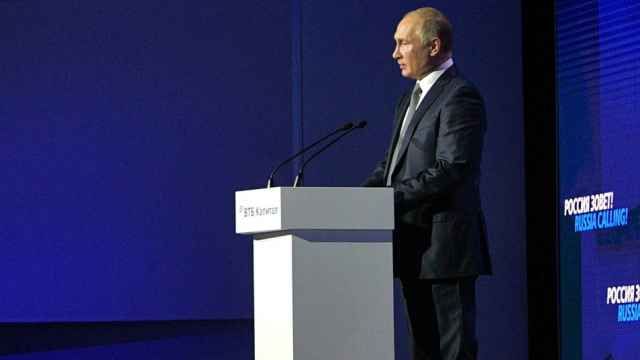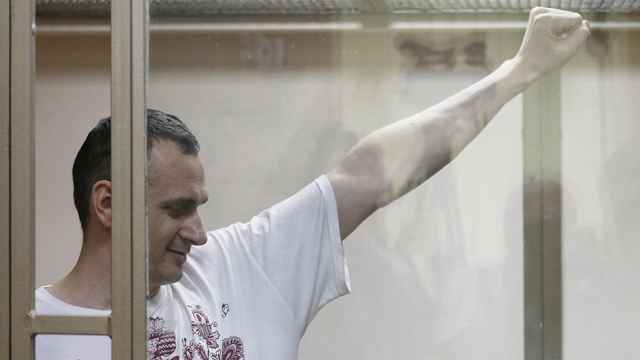The Kremlin said Friday that volunteers including from Syria would be welcomed to fight alongside Russia's military in Ukraine, embroiling the Middle East in a conflict the West has worked to contain.
Dozens of men in camouflage, hoisting Kalashnikov assault rifles and pro-Russian banners, appeared in footage Russia's Defense Ministry said was a gathering of veterans in Syria, eager to join the Ukraine conflict.
Moscow's plans to bring in as many as 16,000 private fighters into the conflict came as Russian strikes hit fresh civilian targets in central and eastern Ukraine on Friday, including a care home for disabled people.
Moscow's troops are edging closer to the capital Kyiv, two weeks after President Vladimir Putin announced a so-called "special military operation" in Russia's pro-Western neighbor.
The Kremlin's spokesman told reporters Thursday that the Defense Ministry had "talked in particular about those who sent their requests from the Middle East countries and from Syria."
"There was no talk about our fellow citizens," volunteering, Putin's spokesman Dmitry Peskov said.
Russian mercenaries gave key support to pro-Moscow separatists in eastern Ukraine in 2014, observers say, when the Kremlin annexed the Crimean peninsula after street rallies ousted a Kremlin-friendly leader.
They also gave Russia a level of plausible deniability when it intervened in the Syrian conflict in 2015 with a bruising air campaign that decimated the opposition and turned the tide in favour of Syrian President Bashar al-Assad.
Peskov said the decision to send volunteer fighters to Ukraine was within reason, claiming that the United States was backing measures to send mercenaries to fight alongside Kyiv's army in Ukraine.
"If the West is so enthusiastic about the arrival of mercenaries, then we also have volunteers who want to participate," Peskov told journalists.
'Help' volunteers reach battlefield
Putin backed plans to allow volunteers — including from abroad — to fight in Ukraine earlier Friday and Defense Minister Sergei Shoigu said more than 16,000 mostly Middle Eastern volunteers had appealed to join the military action.
"If you see that there are people who want on a voluntary basis (to help east Ukraine's separatists), then you need to meet them halfway and help them move to combat zones," Putin told Defence Minister Sergei Shoigu during a televised security council meeting.
Ukraine has announced the creation foreign volunteer contingents to be integrated into its armed forces to fight Russian troops on its territory.
Prior to the onset of fighting in Ukraine, training camps sprouted up across the country to train civilians in basic self-defence, first aid, and small arms use.
Russia launched a massive military operation in Ukraine late last month, spurring an exodus of refugees to Europe and allegations of war crimes.
It has also seen members of NATO, the U.S.-led military alliance that Ukraine seeks to join, sharply increase weapons supplies to Ukraine, and bolster troop deployments near Russia.
Putin on Friday asked Defense Minister Shoigu to prepare plans for possible fortification of Russia's western border "in response to actions taken by NATO countries."
Poland and the three Baltic states share a common border with Russia while Ukraine borders NATO members Hungary, Romania and Slovakia.
Putin also said that any weapons seized during the fighting by Russian troops — particularly Western-produced arms — should be handed to rebels in eastern Ukraine, regions Putin recognized as independent.
"I support the possibility of transferring them to the military units of the DNR and LNR," Putin said of confiscated weapons, referring to so-called Donetsk People's Republic and the Lugansk People's Republic.
Ukraine's army had been fighting the rebels since 2014, prior to Russia's incursion, in fighting that claimed 14,000 lives.
A Message from The Moscow Times:
Dear readers,
We are facing unprecedented challenges. Russia's Prosecutor General's Office has designated The Moscow Times as an "undesirable" organization, criminalizing our work and putting our staff at risk of prosecution. This follows our earlier unjust labeling as a "foreign agent."
These actions are direct attempts to silence independent journalism in Russia. The authorities claim our work "discredits the decisions of the Russian leadership." We see things differently: we strive to provide accurate, unbiased reporting on Russia.
We, the journalists of The Moscow Times, refuse to be silenced. But to continue our work, we need your help.
Your support, no matter how small, makes a world of difference. If you can, please support us monthly starting from just $2. It's quick to set up, and every contribution makes a significant impact.
By supporting The Moscow Times, you're defending open, independent journalism in the face of repression. Thank you for standing with us.
Remind me later.






